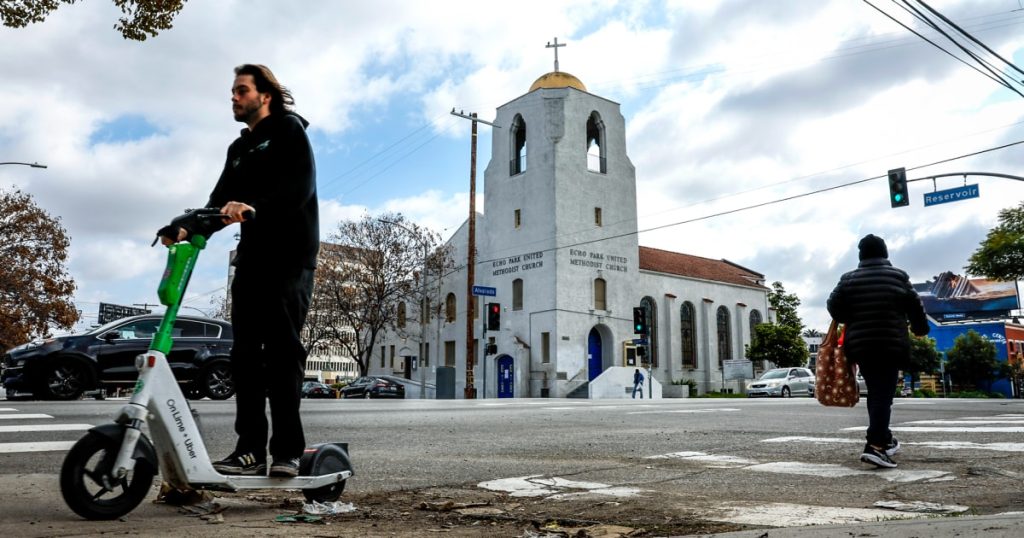Leaders of the United Methodist Church are gathered for their first international conference in nearly a decade to address divisive issues such as gay marriage, ordaining LGBTQ pastors, and a declining membership. The church has become deeply divided over the past few years, with many congregations leaving due to disagreements on LGBTQ rights. The conference will include votes on repealing bans on same-sex marriage, ordaining LGBTQ clergy, and granting more autonomy to conservative congregations abroad.
More than 7,600 congregations, or about 25% of the church, have broken off in recent years due to disputes over LGBTQ issues, leading to a significant loss in revenue. The proposed budget for the United Methodist Church has decreased from $604 million in 2016 to $347 million this year, resulting in reductions in pastors’ salaries. Kimberly Scott, lead pastor of Grace United Methodist Church in Long Beach, California, sees this moment as an opportunity to secure more rights for LGBTQ individuals and advocates for inclusivity within the church.
In 2020, the church proposed splitting into different entities to address disagreements over same-sex marriage and LGBTQ clergy. JJ Warren, a prominent LGBTQ activist and UMC member, supported the split as a way for both sides to practice their beliefs freely. Glen Haworth, lead pastor of the Fount church in Fountain Valley, California, likened the current fragmented state of the church to the period before the Civil War when the country was divided over slavery. He expressed a desire for his church to disaffiliate from the denomination and join the conservative Global Methodist Church.
During the conference, leaders will also address issues related to policy abroad, with many UMC churches located in Africa and Asia. Some congregations in these regions are considering disaffiliation due to concerns that the U.S. church is becoming less conservative. Leaders may vote on regionalization, which would allow different regions of the world to govern themselves rather than following the same global rules. Haworth hopes that the conference will make it financially easier for churches to leave the UMC, as the current exit fees are prohibitive for many congregations.
The outcome of the conference will shed light on the current state of the United Methodist Church as it grapples with contentious social and political issues. The church’s response to LGBTQ rights and inclusivity will have a significant impact on its future trajectory and may result in further divisions within the denomination. Leaders will need to navigate these challenges carefully to address the concerns of members with diverse perspectives while ensuring the unity and integrity of the church as a whole. The decisions made at the conference will shape the future of the United Methodist Church and its relationship with LGBTQ individuals and congregations around the world.













